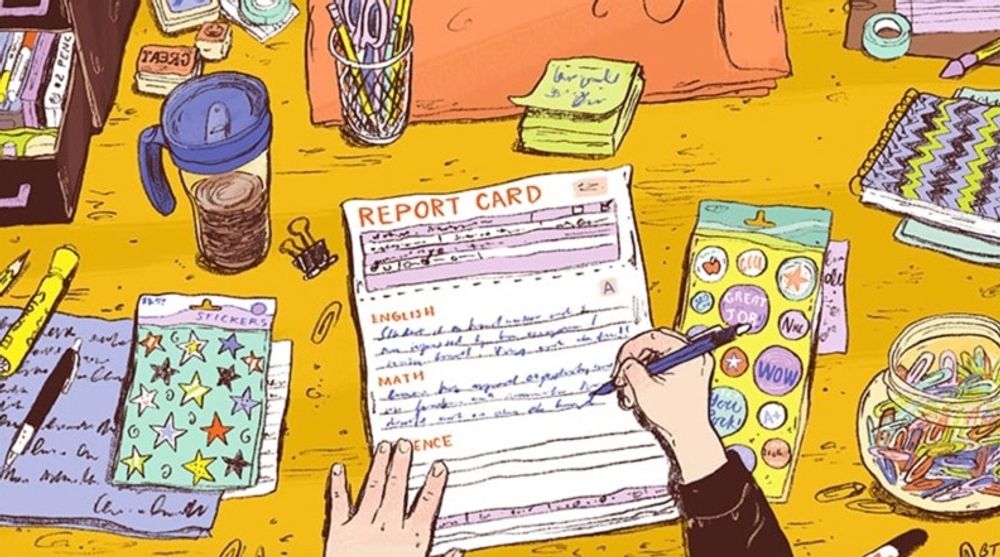Reading your Child's Report, Part 1 of 2
Yes it is that time of the year when teachers all across Australia are busy preparing reports by: gathering evidence, discussing data and observations with colleagues, assigning grades and writing comments for Semester 1. We use this report period to reflect on each child’s learning and to begin to prepare for Semester 2 and the learning that is to come next. And most importantly we take this opportunity to celebrate every child’s successes.
“Train up a child in the way he should go; even when he is old he will not depart from it.” Proverbs 22:6
This week I would like to explain one aspect of the Claremont College reports and in Week 7, I will go through the Key Learning Areas.
LEARNER DISPOSITIONS, CHARACTER & PERSONAL DEVELOPMENT
Within this table we look at each child’s social development, their personal development in regard to their intrinsic motivation, their ability to utilise various learner dispositions and their technology use.
As you know educators place a high level of importance on the soft skills because if we don’t get these right we rarely get the academic skills right, ‘our students will need to have the full package of skills for any career path they choose in the future’. (Intelligence Is Not Fixed)
When you receive your child’s report and look at the table on Page 3, please remember to celebrate all of the dispositions, character and personal development traits with your child. It would be very unusual for a child or adult who would receive all ticks in the ‘consistently’ column. The outcomes we aim to see here are all highly sought after soft skills, they are challenging in that to achieve them consistently is a big ask, but most of us can achieve some of them with consistency, while learning to work on the others when we grow and mature.
NB The table’s progressions for demonstrating each descriptor are broken into Consistently |Usually | Sometimes | Seldom.
The positions on the progressions are assigned to each child, after an evidence gathering consultation process between the teaching team, along with information gained from your child’s feedback as well. To achieve a ‘consistently’ or a ‘usually’ means that your child has mastered or almost mastered this particular skill as they have demonstrated it consistently or usually across the whole semester. To achieve a ‘sometimes’ or ‘seldom’ means that your child has not mastered this particular skill yet, and it would be wise for them to focus on this as an area for growth.
NB Each of the descriptors are considered at grade level expectations for each child.
INFANTS AND PRIMARY LEARNER DISPOSITIONS, CHARACTER & PERSONAL DEVELOPMENT
- Is polite and courteous, and displays good manners toward peers and adults
- Demonstrates good organisation skills and takes responsibility for own belongings
- Exhibits curiosity by asking insightful questions during learning activities
- Takes time to reflect on discussions and events to further their understanding
- Displays resilience and problem-solving skills to stay on task and find solutions
- Works collaboratively to complete tasks when required
- Willingly takes on more challenging tasks to further their own understanding
- Follows instructions in all situations and takes responsibility for own actions
- Explores new technologies to support and communicate their learning
- Uses technology respectfully and responsibly
WITH ADDITIONAL DISPOSITIONS FOR PRIMARY STUDENTS
- Demonstrates independence and focus when required
- Has shown initiative by doing things without being asked
- Demonstrates both ambition and persistence to reach goals
When your child’s report become available:
PLEASE DO...
- Celebrate all of the ticks regardless of where they are;
- Ask your child if they feel the ticks are a fair account of their observable behaviours when they are at school;
- Ask your child what it is they should work on next;
- Praise your child for being able to reflect on their learning behaviour;
- Offer to help your child to improve in 1 or 2 areas;
- Talk to your child’s teacher about areas that you might be able to work on at home; and
- Remember your child is doing the best they can.
PLEASE DO NOT...
- See this achievement list as a bell curve;
- See your child as failing if they do not achieve all ‘consistently’ ticks;
- Be surprised if your child does not consistently achieve each of these outcomes;
- Shoot the messenger - your child’s Teaching Team are working along side you and giving you and your child honest feedback from Semester 1, 2021; and
- Take your child’s report personally, it is about your child who is a unique and precious individual.









